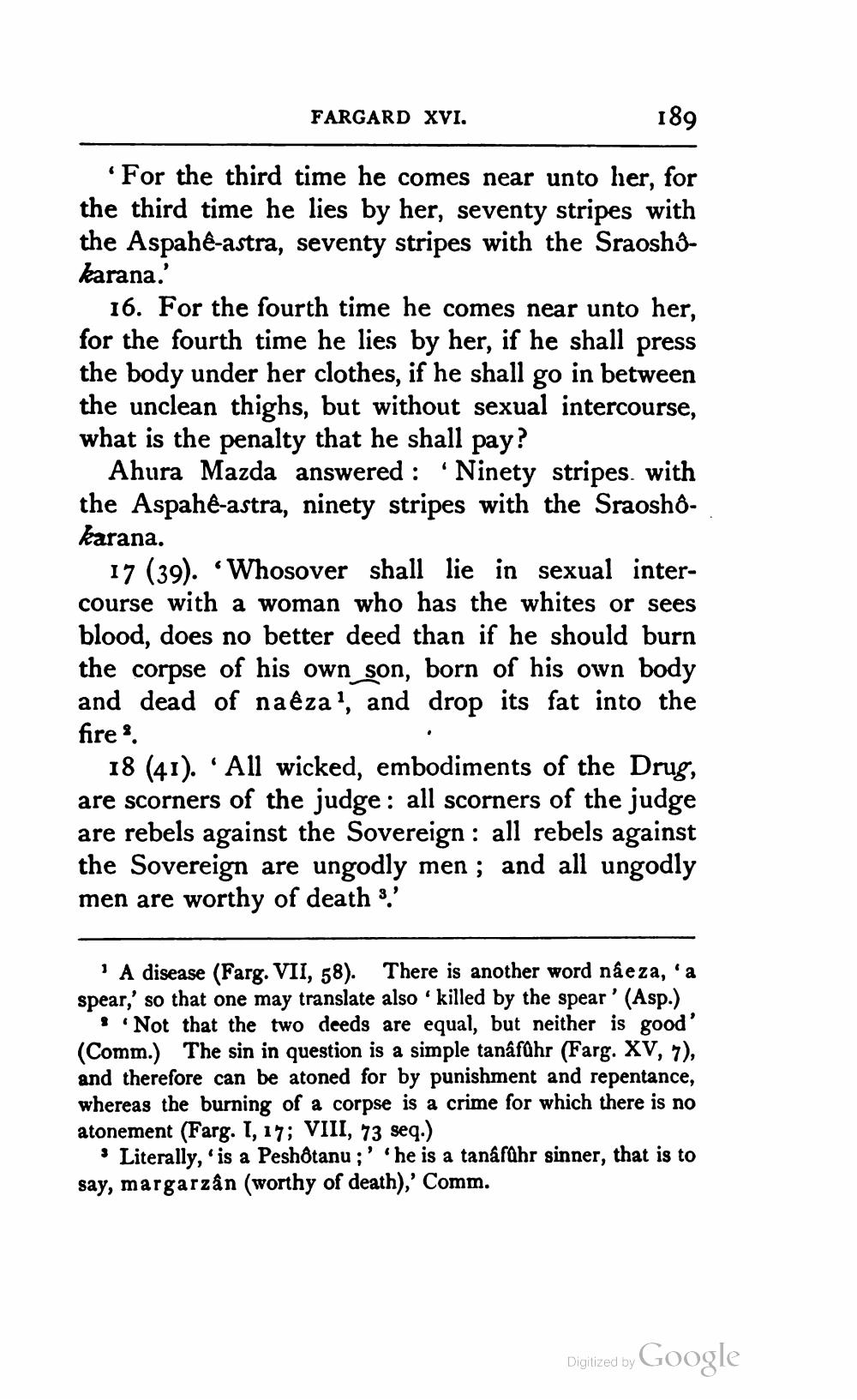________________
FARGARD XVI.
189
For the third time he comes near unto her, for the third time he lies by her, seventy stripes with the Aspahê-astra, seventy stripes with the Sraoshồkarana.'
16. For the fourth time he comes near unto her, for the fourth time he lies by her, if he shall press the body under her clothes, if he shall go in between the unclean thighs, but without sexual intercourse, what is the penalty that he shall pay?
Ahura Mazda answered : 'Ninety stripes. with the Aspahê-astra, ninety stripes with the Sraoshôkarana.
17 (39). "Whosover shall lie in sexual intercourse with a woman who has the whites or sees blood, does no better deed than if he should burn the corpse of his own_son, born of his own body and dead of naêza', and drop its fat into the fire.
18 (41). “All wicked, embodiments of the Drug, are scorners of the judge: all scorners of the judge are rebels against the Sovereign : all rebels against the Sovereign are ungodly men; and all ungodly men are worthy of death ?'
' A disease (Farg. VII, 58). There is another word naeza, 'a spear,' so that one may translate also ‘killed by the spear' (Asp.)
: Not that the two deeds are equal, but neither is good' (Comm.) The sin in question is a simple tanâfâhr (Farg. XV, 7), and therefore can be atoned for by punishment and repentance, whereas the burning of a corpse is a crime for which there is no atonement (Farg. I, 17; VIII, 73 seq.)
· Literally, 'is a Peshôtanu ;' he is a tanáführ sinner, that is to say, margarzân (worthy of death),'Comm.
Digitized by Google




